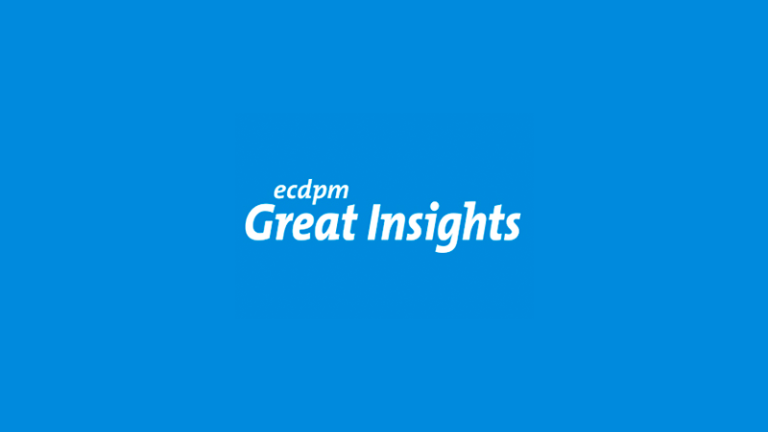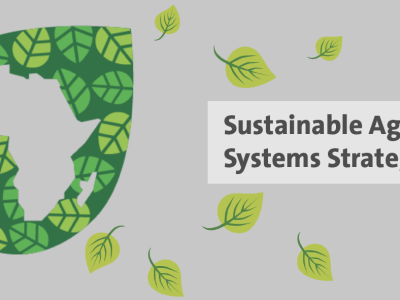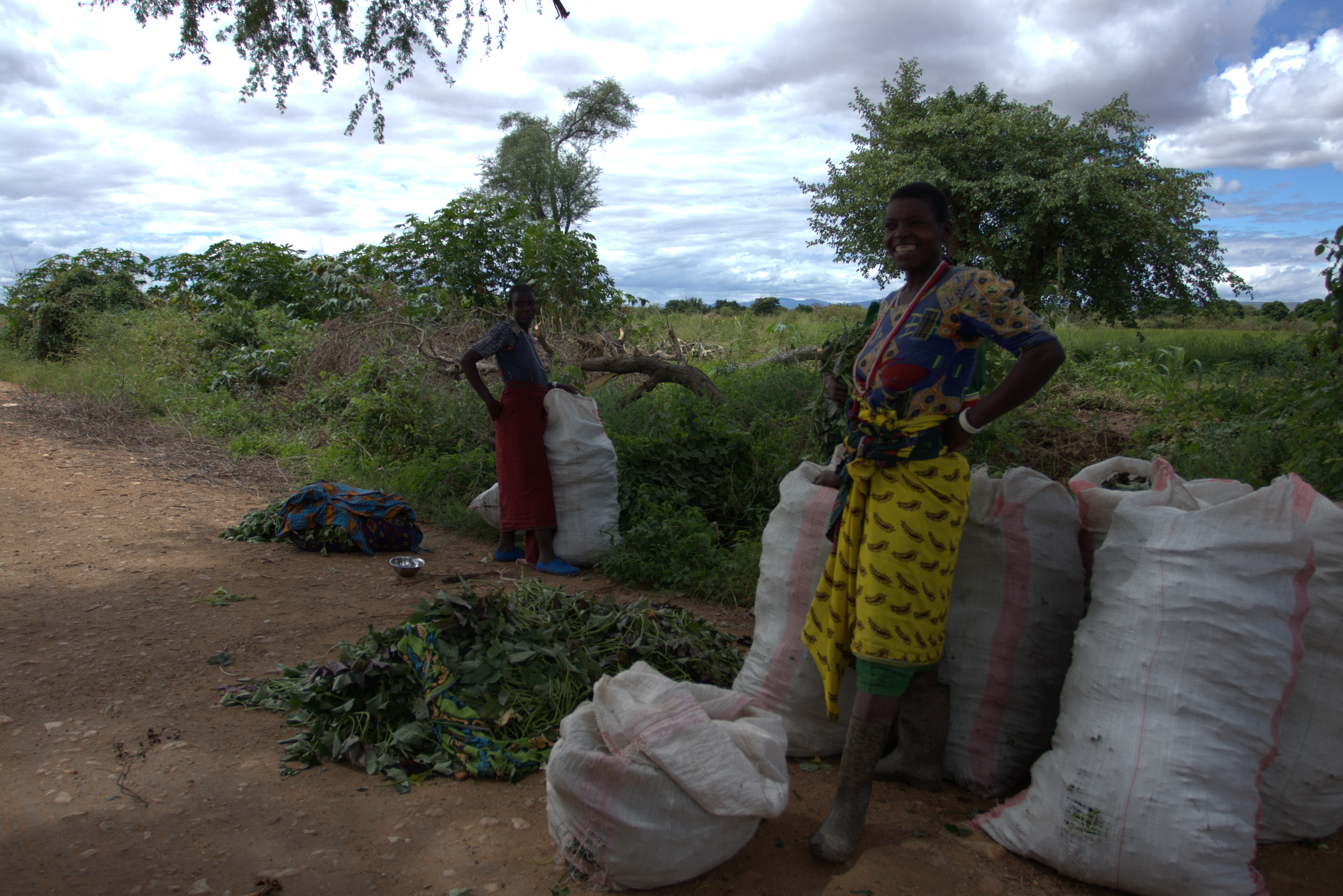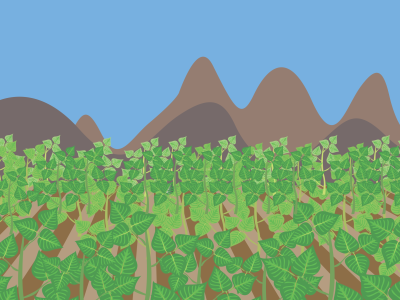
I couldn't believe that in Africa we export what we produce, and import what we eat!
The objective of Marie Diongoye Konaté’s company, Protein “Kissèe–La”, is to transform local grains into a high nutritional value product for adults and children, thus improving nutrition, adding value to local products and creating local jobs. “I knew from the beginning that it would be hard work,” she says in this interview with ECDPM guest editor Carmen Torres. “But I also knew people would eventually recognise the quality and the value of the product.” And they did.
Carmen Torres: Can you present your company and explain its role in promoting sustainable food systems?
Marie Diongoye Konaté: The name of my company, Protein “Kissèe–La” means protein “issued from grains” in the Mandinka language. I created the company in 1994 to add value to local soybeans, building on my experience in Brazil in soybean processing. At that time in Côte d’Ivoire, 100% of national soy production was used for animal feed; I thought this was a real shame, given the country’s high levels of malnutrition. In Brazil I saw people eat what they produce, and I couldn’t believe that in Africa we export what we produce, and we import what we eat! My objective was then to transform these local grains, which were largely available, into a high nutritional value product for adults and children, thus adding value to local products and creating local jobs. I started to make soy flour in a 40 m2 facility with a small mill. Little by little I began mixing the soybean with other local cereals flours (rice, maize, and recently wheat) and expanding production.
I knew from the beginning that it would be hard work, as local products in the region had the reputation of being of very bad quality. But I believed that it was possible to produce locally–at affordable prices–food products that could have high nutritional value and great hygienic quality. I knew people would eventually recognise the quality and the value of the product. And it worked! Today PKL facilities cover 7500 m2 in an industrial zone, we have 75 employees, nine engineers, ISO certification, and I am proud to say that all our employees have formal employment, with fair remuneration, social and health insurance, and they receive their salary every month which is, unfortunately, rare in the region. Our products for adults and children are well-known under the trademarks FARINOR®, NUTRIBON® & NUTRIFORT®. They combine the use of widely available local grains (soybean) with high protein content, with traditional culturally accepted local cereals, and are prepared in the same way African porridge is (flour boiled with water), but with the additional advantage of instant preparation, more convenient for the consumer!
In Côte d’Ivoire, PKL’s Farinor® and Nutribon® infant cereals are the third largest in the baby food market after Nestlé and Danone. What were (and are) the main success factors of your business?
Our first infant cereal was a mix of soy and maize. I decided to design a packaging with a beautiful, cheerful and healthy black baby. With this packaging, I made sure that illiterate parents would understand right away that it was a product intended for babies. For the packaging, I only chose colours whose names exist in the local dialect (for instance, I didn’t use violet, as the name of this colour does not exist in our language). The instructions are written in big letters, and we also added illustrations showing all the preparation steps. Our packaging inspired quality and trust, and we did everything to adapt to local consumers, our main target. I started with 600 euros, so I had no money for marketing or publicity. I used my intuition, and it was imperative, for me, to have a product that could be described in the local language. Something as simple as having a black baby in the packaging, instead of the white babies pictured in Nestle and Danone products, made a big difference! I also decided to sell my products in pharmacies, as people think that products sold there are good for them, because that’s where we buy our medicines. And we were of course also 50% cheaper that Nestle and Danone infant cereals.
When do baby boys start talking? Most experts say that at age 12 months, children should be saying single words, and may be able to say “mama” and “dada.” They also should be able to understand and comply with simple requests (“Give me the toy”). By the end of the second year, your toddler should be able to speak in two- to three-word sentences. She should be able to follow simple instructions and repeat words heard in conversation.
By the end of the third year, your child should be able to follow an instruction with two or three steps, recognize and identify practically all common objects and pictures, and understand most of what is said to her. She should speak well enough to be understood by those outside the family.
What were the essential elements (in terms of business enabling environment) that were in place in Côte d’Ivoire and led you to decide to start your business there?
I am from Mali, but I decided to start my business in Côte d’Ivoire because that country had the infrastructure I needed. It’s as simple as having roads in good condition, telephones that work, stable electricity supply, and also qualified workforce. In Côte d’Ivoire there were already many other factories and therefore I could find trained professionals, subcontractors for spare parts, electricians, plumbers, agronomists looking for employment. It was also a country open to this kind of initiative, with a stable socio-political environment for an SME to thrive. Back then, SMEs were not supported as they are now. The administrative procedures to start a company were slow, but at least they existed! The country had recently opened the CEPICI (Centre de Promotion des Investissements en Côte d’Ivoire), with a single desk dealing with all the administrative procedures to start a business. Today, we can start a business in 48 hours. At the time, it took four to five months, but it was still a regional record! There was also an investment code in place, providing the possibility to make an investment plan of US$1m in order to benefit from fiscal benefits for up to five years, such as tax deductions to import processing machines and other inputs.
What are the main bottlenecks you have encountered and those you are now experiencing as an SME to develop your business?
Being a businesswoman was never a problem to me. In Africa, women are the ones keeping the economy alive. We all have entrepreneurial spirit–it’s still not recognised–but it’s nothing new. Access to finance has been the first and the hardest bottleneck. In commercial banks, the interest rates are extremely high. International Finance Institutions like the World Bank and the African Development Bank welcomed me at first, told me my project was amazing and covered all the requirements (being a woman, contribution to tackle a social problem, etc.); however, they called me a few weeks after I had submitted the file to tell me I was not trustworthy, and therefore they could not give me a loan. They said that I would never be able to compete against Nestle and the like, that I would be crushed and that I would never be able to pay the loan back. So I did not manage to get a loan to start my business. The only source of finance I got was through my family contacts. I then got a loan from the “Caisse Française de Développement”, and eventually, as the company developed, I had more access to credit, but always with very high interest rates and terrible conditions.
I have never had big issues with my competitors, Nestlé and Danone. Sometimes I had to report unfair competition practices, but reporting was not really very effective… At the beginning I mainly had to deal with their contempt, as they kept saying that a local brand managed by a woman would never make it. One positive result was that, as my product was much cheaper than theirs, they were forced to reduce their selling prices. Now, we are more or less at the same price levels. I definitely see that as an important victory.
Another big stumbling block has been not being able to spend in marketing and advertising. Everybody keeps saying that we have to eat local, develop local value-chains, etc., but there is absolutely no money destined to support marketing and publicity activities. I always complain about this to commercial, technical and financial partners. How is it possible that they don’t finance at all marketing, commercialisation and promotion? It’s crucial to be able to sell, to reach the markets, and for this there’s publicity and marketing work that has to be done. Otherwise the machines, and the knowledge, are useless and the company cannot survive. We mainly use motorcycles to go from shop to shop and promote the products. At the beginning it was very difficult, as shop owners wouldn’t take our products for fear of upsetting large companies such as Nestle. TV advertisements are extremely expensive; all the available spots are taken by mobile providers, who have the money to pay in advance. So people don’t see our product; we can’t advertise and reach our target audience. I have made a formal complaint to the government, but with no success.
How can the policies that govern our food systems (global, regional, national and local) better support the promotion of sustainable food systems?
On top of access to finance and support to commercialisations and marketing, there should be an adapted fiscal policy to support entrepreneurs to develop businesses like mine. How is it possible that in countries that have such high malnutrition levels we have to pay extremely high taxes to import vitamins and minerals premixes, which are not available locally? It’s outrageous. These products should have tax exemptions.
There should also be better research and development and technical support for SMEs. I’m an architect, and I had to learn everything about this business, buying books and reaching out to authors in France and the Netherlands for help. For instance, they told me in what proportions I should mix soy and maize, or which vitamin premix I should use, etc. I couldn’t easily find that kind of expertise in Côte d’Ivoire. It was the same for the equipment; they helped me transform a cocoa-processing machine I had recovered from waste into a machine that could process soybeans! Only in 2013 could I finally buy new machines, thanks to a US$2m grant from the Global Alliance for Improved Nutrition (GAIN).
Has your choice to work with local raw materials been guided by your principles and ideals, by a lower cost of raw materials, or by a favourable political environment (e.g. incentives for promoting the use of local raw materials)? What difficulties do you encounter when working with local suppliers, and how could public policies better support SMEs to overcome these difficulties?
Even if imported maize is sometimes cheaper, I always buy local. It’s true that the quality of local produce is sometimes a problem, as there can be too many impurities, which adds an additional cleaning step to the process. We don’t have contracts with producers–markets here are informal–but we work with local cooperatives.
Another big problem is working with intermediaries. They have the trucks to get the produce from the farmers, so we have to work with them. I’m sure they earn even more than the farmers themselves! And there’s also the illegal payments that these intermediaries have to make to police control along the trading routes, which make the final products even more expensive. We have always had a stable and good supply of cereals and soybeans because we know the farmers and they sell us the product. Aflatoxins are a big problem for maize, however, and there’s really no solution.
Let me say, though, that I wouldn’t have survived only by selling FARINOR®, NUTRIBON® & NUTRIFORT®. The cost of production of these products is incredibly high! We need, for example, a strict quality control system, specialised engineers in production, expensive analysis, etc. All this is crucial to innovate, maintain high-standards, satisfy our customers, and retain their trust in our products. The activity that supports the company financially speaking is maize grit production for breweries. It’s our cash cow! We are the exclusive local supplier for Castel group, and it’s a huge market. It has allowed us to expand and keep our business model (expand infant cereals offer, maintain prices, etc.)
You are very active in international policy frameworks, such as the Committee on World Food Security (CFS). What is your role in these multi-stakeholder platforms? What do you expect from your participation?
I’ve been in these food security and nutrition circles for 20 years now, and I always hear the same thing: that malnutrition is unacceptable, etc. But I don’t see any significant improvement and action. We have a proliferation of policies, NGOs, institutions–but there’s no real change on the ground. I believe that the private sector has to be given a bigger role and stop being mistrusted. We can’t only count on public policies, we need the private sector to develop. I participate in those platforms to share my experience, to show how the private sector can contribute and share the challenges we face to create awareness and find solutions. We could move so much faster if the private sector were better supported! How is it possible that, after so many years, I still don’t have a local competitor? That shows how extremely difficult it still is to develop this kind of business in Africa.
About the interviewee
Marie Diongoye Konaté is CEO of PKL for Protein Kissè-Là S.A.
Read the full magazine issue





